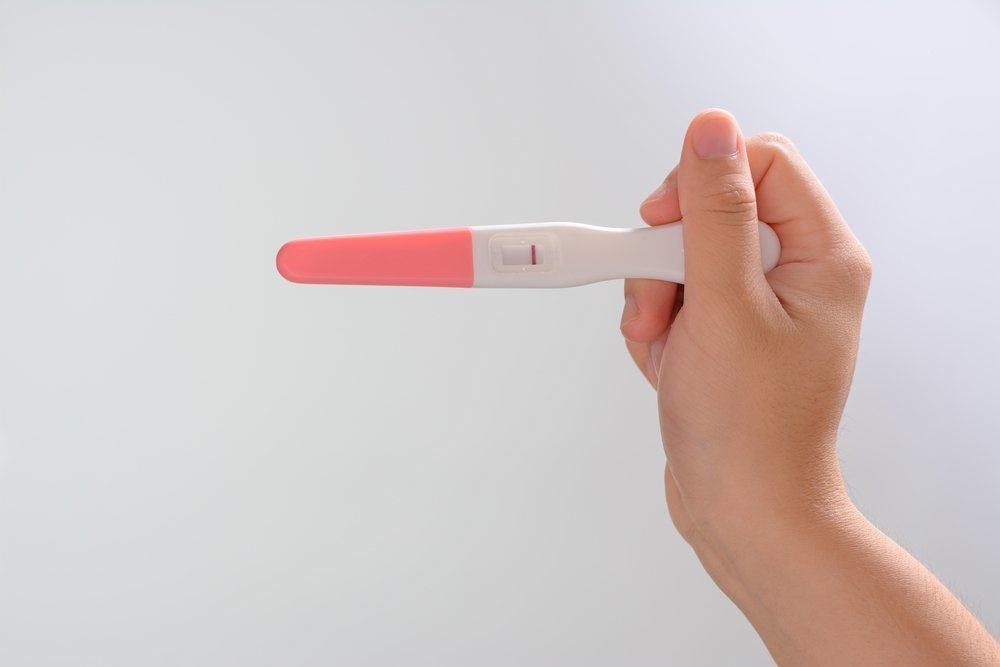Contents:
- Medical Video: Salena Zanotti, M.D. - Study: Exercise During Pregnancy can Benefit Obese Moms
- How can obesity affect fertility?
- Unbalanced leptin hormone
- Insulin hormone resistance
- Causing a miscarriage
Medical Video: Salena Zanotti, M.D. - Study: Exercise During Pregnancy can Benefit Obese Moms
Obesity is a condition in which a person has a high body mass index of more than 27. According to WHO, in 2014 there were 600 million adults of obesity. In Indonesia alone, the incidence of obesity in the adult female group in 2013 was 32.9% which increased by 18% from 2007.
Obesity can cause a variety of chronic diseases, such as heart disease, diabetes mellitus, and hypertension. Not only that, obese women are at risk of experiencing reproductive dysfunction and causing infertility or infertility. Infertility or infertility is defined by a condition in which women do not also experience pregnancy despite regular sexual intercourse. Then, why obesity can cause infertility for women?
How can obesity affect fertility?
Some studies have shown that pregnancy is difficult for women who are obese when compared to women with normal or overweight weight. Even when experiencing a pregnancy, obese women are at risk of having a miscarriage. A study conducted on 3,029 couples, showed that in women who had a BMI more than 30 had difficulty conceiving for at least one year. In addition, it is also known that women with a BMI of more than 30 cannot have a normal birth. Whereas women with a BMI of 40 or more, decreased their chances of getting pregnant by 43%.
Surveys show that women with BMI 24 to 31 experience anovulation (ovaries do not produce eggs) 30% higher each month compared to women who have a normal BMI. Even women with a BMI of more than 31 have a 170% higher chance of experiencing anovulation.
Unbalanced leptin hormone
People who are obese, usually tend to eat foods with high calories, sugar, and fat. When the body consumes too much fat, it will appear leptin hormone which serves to regulate appetite and give signals to the brain that the body is 'full'. However, the continuous intake of fat will make the hormone leptin continue to be produced by the body. The more amount of fat consumed, the higher the level of leptin. However, leptin becomes resistant and does not function properly because too much fat enters so too high levels of leptin in the body.
Disorders of leptin function can affect the imbalance of sexual hormone levels, such as luteinizing hormone and estradiol which are fertility hormones in women. These hormones help prepare the ovum or eggs in women. In addition, women have three times higher levels of leptin than men. So that, when women consume too much fatty food, then the leptin produced will also increase. This is what causes obese women to get pregnant.
Insulin hormone resistance
Not only resistance to leptin, the body also experiences resistance to the hormone insulin. When people who are obese consume too much carbohydrate or sugar there will be hyperglycemia in the body. Hyperglycemia that continues will result in the body not being sensitive to the hormone insulin. Research states that the pituitary cells that function to produce hutene luteinizing, which plays an important role in the fertilization process and determines the fertility of women.
The study was conducted on female mice that lost insulin receptors, so the body could not receive signals from the hormone insulin. The female rat was given high-fat food for three months. At the end of the study, it was found that the female rats experienced polycystic ovary syndrome (PCOS), which is a condition that is usually the reason for infertility in women. In addition, several other female mice also showed irregular menstruation and other reproductive disorders.
Other studies say that polycystic ovary syndrome results in an increase in androgen hormones (male hormones) in women, and disrupts the ovaries to produce eggs. Many things cause PCOS, but researchers say that having nutritional status that is obese can increase the high risk for women experiencing PCOS.
Causing a miscarriage
Although obese women have managed to get pregnant, the pregnancy is very risky for the health of the fetus. Obese women tend to have poor quality eggs, experience disturbances when the process of implanting ovum (which has been fertilized) occurs, and disruption of hormone function due to obesity will be difficult during pregnancy.
However, along with a decrease in body weight and fat levels in the body, women can normalize their reproductive functions again. The British Fertility Society states that women who are obese have to lose weight to be normal in order to be fertile again.
READ ALSO
- How to Check Who Is Infertile: Husband or Wife?
- Do’s and Don’ts To Maximize Your Fertility
- How Chronic Diseases Affect Fertility












